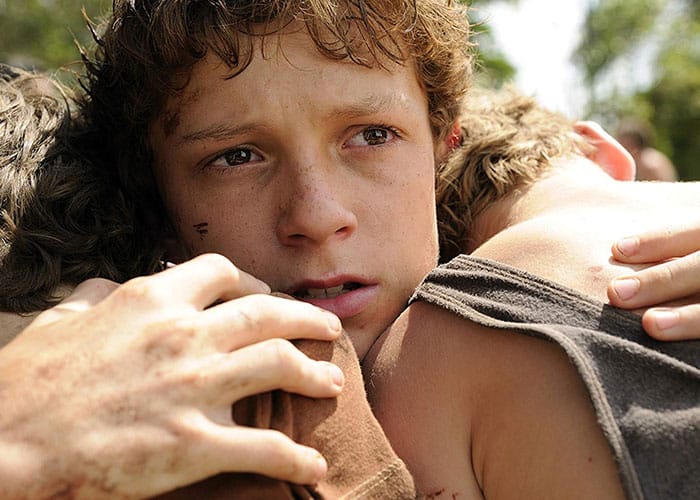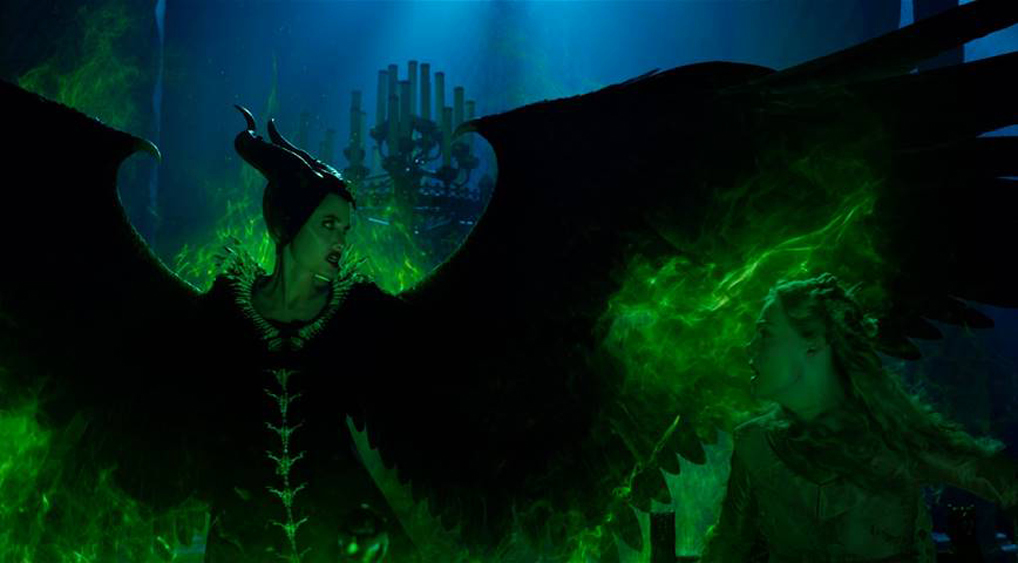How Tom Holland Celebrates Potent Sentimentality

Welcome to Filmographies, a column for completists. Every edition brings a working actor’s resumé into focus as we learn about what makes them so compelling. In this entry, we spotlight the filmography of Tom Holland.
There’s nothing Tom Holland can’t do. The high-flying British actor’s whirlwind metamorphosis from a rising star (provable by the coveted BAFTA trophy) to mainstream super sensation is an incontrovertible success story — one typically reserved for the very best of “meteoric” performers in Hollywood. A thorough analysis of the riveting and distinctive resumé that Holland has aggregated over the years reveals gutsy dramatic challenges and an industrious work ethic that diversifies his genre experiments.
The Secret World of Arrietty (2010)
Tom Holland started out stronger than most with a Studio Ghibli film. After generating substantial buzz for his onstage turn in Billy Elliot the Musical, he landed a leading voice role in the UK English dub of The Secret World of Arrietty, an animated fantasy film co-written by the veritable Hayao Miyazaki.
The movie depicts a family of tiny people known as Borrowers living alongside regular-sized humans. They pinch innocuous everyday items from their larger counterparts only to the extent that their existence remains a secret to the rest of the world. However, during one such pilfering mission, the film’s eponymous heroine must deal with the consequences of being detected by a perceptive, sickly boy named Shō (Holland).
Shō is stuck convalescing in his great aunt’s home over the summer when he first discovers Arrietty. Although well-meaning and gentle, his brushes with chronic illness inspire a morbid and fatalistic fascination with the Borrower species — at least at first. Shō fails to recognize how his supposed acts of kindness toward these tiny people could still scare them and is initially determined to alleviate his own loneliness by demanding their kinship.
Consequently, Holland portrays Shō in a muted, reserved way, with practiced restraint and measure that facilitates pragmatism. Those aware of the actor’s later works may find this lack of emotiveness unusual. That said, Holland’s circumscription subsequently gives way to the benevolence that we’re more accustomed to seeing from him further down the line.
The Impossible (2012)

Tom Holland made the ideal live-action debut in J.A. Bayona’s The Impossible, insofar as it is a laudable dramatic challenge for the fledgling performer. The movie is based on the survival story of María Belón and her family, all of whom escaped the devastation of the 2004 Indian Ocean tsunami. The fallout of the disaster is transposed onscreen via an all-star cast, including Naomi Watts as a fictional re-creation of Belón — renamed Maria Bennett in the film — and Ewan McGregor as her husband Henry.
Holland plays twelve-year-old Lucas, the eldest of Maria and Henry’s three sons. The entire Bennett clan luxuriates on a seemingly picturesque vacation to Khao Lak, Thailand, over Christmas break, but their festivities are horrendously cut short by the tsunami. Maria and Lucas are quickly separated from the rest of their family in the wave’s aftermath. Mother and son must then endure severe physical injury and wrestle with their waning personal conviction to find a way home.
Admittedly, the retelling of this particular story of calamity — one that wrecked countries and affected whole communities across South and Southeast Asia — through the lens of a white tourist family is inherently tricky. To Bayona’s credit, he pulls zero punches when recounting the extent of the disaster, avoiding what could have been a graceless feel-good tale.
Part of that sensitive storytelling process involves casting Holland as The Impossible’s crucial third protagonist alongside his esteemed co-stars. Old enough to believably depict distant teenage angst and yet green enough to exude tragic innocence in the wake of trauma, he takes Lucas on a journey of tenuous self-discovery. Holland showcases an astonishing ability to take the reins from Watts in their standout shared scenes, developing a heartbreaking mother-son relationship with his veteran counterpart. By tapping into Lucas’ vulnerability, confusion, and goodheartedness throughout the movie, Holland provides essential hopefulness amid anguish.
How I Live Now (2013)
Kevin Macdonald’s How I Live Now, an adaptation of Meg Rosoff’s speculative novel, is a dire and morose take on youthful endurance. The movie follows Daisy, a maladjusted American teenager who is begrudgingly shuttled to the English countryside to stay with her aunt and cousins. In this version of reality, social unrest is prevalent worldwide and nuclear bombs threaten to land on major cities. But this idyllic landscape and the quirky family that calls it home irrevocably change Daisy’s life, despite her many fears, compulsions, and sensitivities.
Tom Holland plays middle cousin Isaac, a cheerful fourteen-year-old who intermittently oscillates between blitheness and surprising maturity. He relishes donning certain responsibilities in his family home, such as gleefully ordering his younger sister around and professing to have known how to drive, without a license, since the age of six. However, there is a short-tempered side to him that just comes with his adolescence.
Isaac’s bright-eyed innocence makes him one of the more fun and dynamic characters in How I Live Now. Importantly, Holland isn’t especially saccharine or cutesy in the part either. Instead, he imbues Isaac with a raw, reactionary fervor that encourages the sullen, unsociable Daisy — and consequently, all of us as audience members — to treasure the somber narrative’s fleeting moments of mirth. Holland’s emotionally-driven optimism is a necessary refuge in the movie, as war and destruction steadily envelop its surroundings.
Locke (2013)
Tom Holland establishes himself as a compelling narrator early in his career. An example of this comes in the short film Moments. Frankly, the five-minute-long movie suffers from a cheesy screenplay about love and loss. That said, Holland swiftly locates palpable sadness at the narrative’s center — to a point where simply listening to his vocal variations is enough to ascertain most of the short’s dramatic weight.
Then there is Steven Knight’s Locke, which features a robust supporting cast that the viewer only experiences through voiceover. The movie follows its leading man of the same name, who holds numerous conversations over the phone with various people in his life while driving from Birmingham to London. Ostensibly a successful family man respected in his workplace, Locke soon reveals that his illicit intercity trip spawns from a careless one-night stand with a colleague.
Holland plays one of Locke’s children, Eddie. Along with his mother and brother, the boisterous kid anxiously anticipates his father’s return home, as the family has plans to watch a hyped-up football match together.
Holland’s performance is so brilliantly tragic precisely because of how painfully unaware Eddie is of the extent of this ordeal. Ruth Wilson gets to let loose as the heartbroken wife, delivering a well-deserved tirade against her unfaithful spouse. Meanwhile, filled to the brim with restless expectation and largely unsullied awe for his dad, Eddie’s chats with Locke are suffused with agonizing rosiness.
While Locke is virtually irredeemable, Eddie’s aching hopefulness perhaps makes the only case for the man’s atonement. In this manner, Holland personifies a vital aspect of the film’s bleeding conscience.
In the Heart of the Sea (2015)
Tom Holland has notably carved a niche for himself in the realm of historical fiction with his genuine, insightful supporting characters. He debuted on the small screen in 2015 playing the minor role of Gregory Cromwell in the BBC miniseries Wolf Hall. That same year, he appeared in Ron Howard’s In the Heart of the Sea, an adventure flick chronicling the real-life sinking of a New England whaling vessel called the Essex — an event that inspired Herman Melville’s fiction novel Moby-Dick.
Holland’s character, an uninitiated, eager young cabin boy called Thomas Nickerson, isn’t central to the bulk of the film, mainly functioning as an observer and a lackey of other seasoned players onboard. He is a keen deckhand, quickly opting — or at least easily persuaded — to wade knee-deep through the most brutal and gruesome grunt work without complaint.
These physical demands notwithstanding, Holland also effectively portrays Nickerson’s increasing despondency in the aftermath of many close calls. The Essex’s thrilling seafaring exploits morph into grievous loss and hard-won survival, upon which the actor intuitively navigates a rapid yet organic shift in the ship’s boy’s comportment. As dictated by the exacting conditions of being lost at sea, Holland expertly teeters between naiveté and disillusionment.






